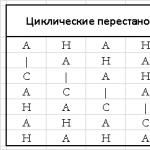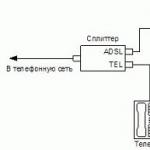Temperatures are starting to rise, so it's time to pay attention to unwanted health hazards. Due to the increase in air temperature, excessive growth of bacteria in the air begins. One of the most common health conditions is food poisoning. Read below what food poisoning is. We tend to get food poisoning in the summer because higher temperatures allow bacteria to multiply faster. This can be a common problem, but it can be prevented. different ways... Although in mild cases, you can get rid of it with natural treatments. Some cases can be serious and may require the patient to be hospitalized.
What is food poisoning?
Food poisoning is a foodborne illness that results from eating contaminated, spoiled, or toxic food. Food contamination is most common during the summer, given the growth of bacteria that can wreak havoc on your health. Some of the symptoms of food poisoning may include nausea, vomiting, water or bloody diarrhea, abdominal pain, cramps, and fever. If these symptoms persist, see your doctor immediately.
In order to avoid food poisoning in the first place, there are some tips that will come in handy.
How to avoid food poisoning?

1. Clean kitchen
Doesn't always mean that foodborne illness is caused by contaminated food. It can also be caused by the environment through which you ingest food. No matter how clean your kitchen is, there is a high chance bacteria is making their way onto your cookware. Always prefer to rinse your dishes before use to save yourself from illness.
2. Fresh food
Hot temperatures can easily contaminate your food and make it toxic enough to cause food poisoning. One of the largest carriers of bacteria includes leftovers, even if stored in the refrigerator. Always cook and eat fresh food. Don't cook too much so you don't have to store leftovers.
3. Heat treatment
Cooked food is only safe when it is heated to a sufficiently high internal temperature to kill bacteria. Cook food thoroughly, especially foods such as chicken, eggs, and red meat. We tend to rely on sight, smell, or taste to tell us to eat or not. But the correct way is to use a food thermometer.
4. Storage
Do not leave freshly cooked food for more than two hours. Either consume it or store it at the right temperature.
5. Defrosting food
Never defrost meat on the counter as this quickly increases the risk of harmful pathogens growing. Always prefer to thaw them in the refrigerator first and then use them for cooking.
6. Avoid raw sprouts
Sprouts can be a major cause of food poisoning because the sprouting method requires warmer temperatures, which are ideal for bacterial growth. Prefer to avoid raw sprouts and fry them and enjoy instead.
7. Dish sponges
Change your sponges and utensils often because these can be the biggest carriers of bacteria. According to a study by the British Council for Global Hygiene, 60 percent of dishes around the world have deadly bacteria such as E. coli.
8. Wash vegetables and fruits thoroughly
Today in the article you learned what food poisoning is. Apart from these basic tips, maintaining good hygiene is the most important factor in saving yourself from illness. A hygienic environment can help you keep many diseases at bay. Wash your hands often and ensure a healthy and happy summer!
Perhaps there is not a single person who does not feel such symptoms when a real hurricane begins, is very nauseous and very scary to leave the toilet for a long time. This is the real food poisoning and most often it happens in the summer! What is this disease, how to prevent it and what should be done in case of food poisoning in the summer, both in adults and in children.
Why is food poisoning most common in the summer?
Of course, you can get poisoned in the middle of winter! But the season for food poisoning is in the summer! But why is this happening?
With the onset of summer, all food products begin to deteriorate much faster. If you pour kefir into a glass and leave it for the whole night on the table in winter, then something is unlikely to happen to it, but in the middle of summer it will turn sour in just a few hours. Even if you put it in the refrigerator, the temperature in summer is different from that in winter. Therefore, you need to check in advance the expiration date on all products that quickly deteriorate, you need to subtract several days from the specified date and do not eat products that have been left without a refrigerator for a long time.
Unwashed hands and unwashed foods
Usually this common reason the occurrence of poisoning during a picnic in nature, in the country, during a hike - that is, in those places where it is impossible to observe food hygiene.
Vegetables and fruits
Incorrect combination of vegetables and fruits with other incompatible foods. For example, a combination of cucumbers and dairy products, since indigestion occurs as a result of fermentation of lactic acid bacteria (this can be seen if you put a cucumber in milk or kefir).
Eating unripe fruit
This can cause food poisoning or mild stomach upset. No need to pay attention to the opinion of your "seasoned" acquaintances who are happy to eat unripe vegetables. Since the resistance of the stomach to such foods is different for everyone.
Children who are more sensitive to such unripe vegetables and fruits are children, so you do not need to stuff your baby with such unripe foods in large quantities.

Food Poisoning Symptoms
Food poisoning in the summer is due to the multiplication of bacteria in the human stomach. Alternatively, it can be described as the "fermentation" of bacteria in the intestines and stomach.
Depending on how much spoiled food you ate, the symptoms of poisoning may appear at different times after eating: for example, from drinking milk with cucumbers, the effect will be obtained in about a couple of minutes, and after you eat one kilogram of green apricots, the result can be seen In a few hours. But fatty, meat and other "heavier" food is digested in the body much longer, and the first signs appear after 6 hours.
- Vomiting and nausea. The human body can recognize itself, everything harmful to it and will try to get rid of it!
- Diarrhea.
- In some cases, severe headache. But this symptom is not required.
- Heaviness in the stomach, lethargy of the whole body. This condition is usually recognized by women who have gone through pregnancy toxicosis!
- Sometimes the body temperature may rise.
In a small child who cannot inform his parents about the poor health, and recognize poisoning in the summer before the child asked to sit on the potty, you can find out by the following signs:
Lethargy child and his desire to get your attention, pale face.
- Smell from the mouth
- Belly rumbling and bloating
- Refusal to eat, complete lack of appetite, atypical thirst
- Low body temperature
But these are only indirect signs that are also characteristic of other diseases, so you don't need to immediately blame them on food poisoning - call an ambulance or a pediatrician as soon as possible.
First aid
What can you do if food poisoning has already occurred? First of all, you need to try to induce vomiting to cleanse the stomach. If at this moment you are not yet nauseous, drink a glass of water, or at least as much as you get, and then induce vomiting, for this you need to take a regular spoon and put it on your tongue. You do not have to try to take any medications, as they simply cannot be absorbed.
After cleansing your stomach, you need to take sorbents like regular activated charcoal.
If you are afraid to leave the toilet, then you should not stop this process with the help of a lepedium, since you need to empty your intestines! "Fastening" can be drunk after the "twisting" in the stomach and ineffective urges cease to torment you.
If you have a fever and a headache, do not eliminate these symptoms with the help of special medications, after the intoxication of your body has passed.
After the disappearance of nausea and gastric lavage, you can take citramone or analgin and the temperature will disappear!
The day after the symptoms disappear, you must definitely go on a diet, at least for a few days - do not eat fresh fruits and vegetables, no fried, fatty, fermented, salty, canned foods!
You can eat light soups, cereals, black bread rusks, strong tea and drink as much liquid as possible.

When should you call an ambulance quickly?
At the slightest suspicion of the following signs, you should call an "ambulance" as soon as possible!
If the diarrhea does not stop after taking "fixing" drugs. This indicates the occurrence of an intestinal infection!
Pain in the liver, kidneys. A more accurate diagnosis can only be made by a therapist.
Severe headaches, which can accompany other diseases. But due to poisoning in the summer, the headache goes away after vomiting.
Increased sweating, high temperature, in some cases, this can mean poisoning with products processed with pesticides. Therefore, you need to call a doctor or an ambulance as soon as possible.
Prevention of poisoning is moderation in the use of unripe vegetables and fruits, hygiene and be careful with perishable foods!
in most cases, they occur on holidays and rest days, their greatest peak occurs in the summer season. Therefore, going on vacation, be extremely careful .. So let's figure out what symptoms of poisoning and how it can be prevented.
Food poisoning (foodborne infection) is a disease caused by eating poor-quality food, less often poisonous plants... Most cases of food poisoning are easy to treat, but sometimes the disease can be severe. Most often, food poisoning occurs in holidays when groceries are purchased in a hurry. Customers do not pay much attention to the quality of the offered products, and unscrupulous sellers take advantage of this.

Why is this happening
The most common cause of food poisoning is a violation of the sanitary and hygienic rules for storing and preparing food, which contributes to the contamination of food with pathogenic microorganisms (staphylococcus, proteus, entrotoxigenic strains of E. coli, etc.) Some toxins released by microorganisms (for example, staphylococcus) are resistant to thermal processing, so food poisoning can occur even after cooking. The consequences of food poisoning are dysbiosis and chronic intestinal infections.
Poisoning symptoms
The picture of the disease depends on the type and amount of poor-quality food eaten. The first signs of food poisoning can appear within 30 minutes after eating. Headache, chills, muscle aches, fever, vomiting, diarrhea are a consequence of food poisoning. The most serious is botulism. Poisoning occurs several hours or days after eating contaminated foods. Spores of botulinum bacillus reproduce exclusively in an oxygen-free environment - in meat products, in canned food. When infected with botulism, nervous system... Symptoms: abdominal pain, vomiting. A few hours later - weakening of vision (a mesh appears in front of the eyes, fog), impaired speech, swallowing, paralysis of other muscles of the body. Failure to provide emergency medical care can be fatal.
First aid
If you suspect food poisoning, it is necessary to rinse the stomach with a weak solution of potassium permanganate to induce vomiting, drink activated charcoal (at the rate of 1 tablet per 10 kg of human weight). After rinsing, you can drink strong hot tea. If the symptoms persist - abdominal pain, temperature above 37 ° C, the whites of the eyes turn yellow, after eating there is nausea, indomitable vomiting mixed with blood, frequent diarrhea mixed with blood - then an urgent need to consult a doctor.
Prevention of food poisoning
To avoid food poisoning, only fresh food should be used for cooking. In particular, special attention should be paid to freshly frozen products, since they are most often subjected to secondary freezing, and this affects the quality of the products. When preparing dishes from meat products and seafood, you must follow basic rules. Dishes cannot be undercooked or undercooked. Ready meals are stored in tightly sealed containers in the refrigerator, but this does not mean that they can be stored in it for a long time.
Quality products
Ready meals must be used within the next two days. When cutting fresh food and ready-made meals, use different cutting boards and knives. Do not use products of dubious quality, unknown mushrooms and berries for cooking. Canned foods should not be stored in open cans. The main thing is to remember that food poisoning is not always a slight discomfort for several days. It can seriously harm health, and sometimes carries a deadly threat.
Many different disease-causing microbes can infect foods, so there are many different cases food poisoning every year. The CDC estimates that every year 48 million people fall ill from foodborne illness, 128,000 are hospitalized and 3,000 die. Researchers have identified over 250 foodborne diseases. ~ Centers for Disease Control and Prevention (CDC)
When contaminated food is consumed, the severity of each symptom varies from person to person. Some experience only mild symptoms; others, more serious. People who have a higher risk of food poisoning are known to be "at risk" and are more likely to experience more serious forms of food poisoning.
In the following, we will discuss several demographic risk factors, and then a few useful tips on how to prevent food poisoning.
First, here are five potential warning signs of illness:
1. Symptoms of the flu
For many, the first symptoms appear as flu symptoms: weakness, nausea, and fatigue. Some people develop fever and chills. If the temperature reaches or exceeds 40 degrees C, you should immediately seek medical attention.
2. Abdominal cramps and pain
Organisms that produce food poisoning irritate the lining of your GI tract; this can lead to painful inflammation of the stomach, which can cause pain in your stomach. The body quickly recognizes the presence of harmful organisms and contracts muscles faster abdominal cavity to drive them out. Unfortunately, this effect also leads to (often severe) seizures.
3. Diarrhea
Diarrhea is a common symptom of food poisoning; characterized by three or more bowel movements of loose and watery stools over a 24-hour period. Frequent urge to go to the bathroom is often preceded by abdominal cramps or bloating. Due to the harsh nature of diarrhea typical of food poisoning, dehydration becomes a potential problem. Drinking water is essential to prevent potentially dangerous complications from a dehydrated body.
4. Nausea
The nausea that accompanies food poisoning can range from one to eight hours of eating contaminated food. Nausea is usually an early warning of food poisoning, as the body tries to tell you that we have digested something that could be harmful. The symptoms of nausea can get worse as the intestines slow down - a natural response designed to keep the toxin confined to the stomach.
5. Vomiting
The “last early warning symptom” of food poisoning is usually an attack of vomiting. While vomiting (and diarrhea) is unpleasant, the body must expel bacteria and viruses from the body to prevent health complications. Some have episodes of severe vomiting during illness (usually 3 to 5 days).
The groups most susceptible to food poisoning are:
- Cancer patients: As cancer weakens the immune system, they are more susceptible to infection-causing bacteria and other pathogens. Combined with the symptoms of their cancer, a case of food poisoning can become quite serious.
- Elderly adults: statistically, adults aged 65 and over are more likely to be hospitalized or have serious complications from food poisoning. The main reason is the slow decline in organ function with aging; including the immune system.
- Pregnant women: During pregnancy, the symptoms of food poisoning are often more severe. In addition, certain food groups significantly increase the risk: seafood, unpasteurized dairy products, and eggs among them.
- Young children: the immune system is not fully developed until four or five years of age. Thus, the child's immune system is unable to effectively eliminate foodborne bacteria and pathogens.
Preventing food poisoning
It is important that we all prioritize safety food products as it can not only affect our health, but also those we care about.
Steps to help prevent food poisoning:
- Clean hands, surfaces and food before handling
- Separate raw meat and poultry from other foods, especially vegetables
- Cook all food at the appropriate temperature
- Chill leftover food by storing it in the refrigerator or freezer
Treatment
Most cases of food poisoning can be treated at home. Here are some steps:
- Avoid eating for the first few hours when your stomach settles
- Drink water, broth, or electrolyte solution to replace essential minerals... (This is especially important when diarrhea and vomiting are severe, as they increase the likelihood of dehydration.)
- Eat when you feel ready, but stick to a limited amount of bland foods such as bread, croutons, and soup
- When you are not eating or drinking, make sure you rest.
If your symptoms do not start to go away within 2-3 days, call your doctor or visit your local medical clinic.
We are committed to respecting the personal information about visitors to our site www.AutoAmericantrade.com.ua This Privacy Policy explains some of the steps we take to protect your privacy.
Confidentiality of personal information.
Obtaining information of a private nature. We receive private information about you, including information that you provide when you register as a user, send us an email or subscribe to receive electronic communications from our site. "Personal information" means any information that can be used to identify a person, such as a name or email address.
Use of private information.
Personal information obtained in the format of electronic registration forms is used by us, among other things, for the purposes of registering users, to maintain and improve our site, to track policies and statistics on site use, as well as for the purposes permitted by you. In addition, we use personal information to communicate with you in other ways. For example, if you send us a message through this site, we may use your personal information to respond to it. We also use personal information to inform you about material changes to this Privacy Policy. From time to time, we may invite users to provide information in the form of surveys or questionnaires. Participation in such surveys or subscription lists is completely voluntary, therefore, the user of the site can decide whether to disclose the information requested. In addition to the other purposes provided for in this Privacy Policy, Contact Information received in connection with surveys or questionnaires is used to communicate the results of surveys or questionnaires to you, and to monitor or improve your use and increase your satisfaction with this site.
Disclosure of private information.
We employ other companies or are associated with companies that, on our behalf, provide services such as processing and delivering information, posting information on this site, delivering content and services provided by this site, performing statistical analysis. In order for these companies to be able to provide personal information, however, they will be allowed personal information that they need to provide services. They are required to maintain the confidentiality of this information and are prohibited from using it for any other purpose. We may use or disclose your personal data for other reasons, including if we believe that this is necessary in order to comply with the requirements of the law or court decisions, to protect our rights or property, to protect the personal safety of users of our website or members of the general public. , for the purpose of investigating or taking action in relation to illegal or suspected illegal activity, in connection with corporate transactions such as divestitures, mergers, consolidations, sale of assets or, in the unlikely event of bankruptcy, or for other purposes in accordance with your consent. We may disclose the content of messages or messages, but we will not post or publish personal information, and, except as provided in this Privacy Policy, such information will not be provided to third parties providing services without your consent. lease or lease our user lists with email addresses to third parties.
Access to personal information.
If, after providing information to this site, you decide that you do not want your Personal Information to be used for any purpose, you can exclude yourself from the list by contacting us at the following address: [email protected]
Our Non-Personal Information Practice.
We may collect non-personal information about your visit to the site, including the pages you view, the links you select, and other actions in connection with your use of our site. In addition, we may collect certain standard information that your browser sends to any site you visit, such as your IP address, browser type and language, time spent on the site, and the address of the corresponding website.
Use of bookmarks (cookies).
A cookie is a small text file placed on your hard drive by our server. Cookies contain information that can later be read by us. No data collected by us in this way can be used to identify a site visitor. Cookies cannot be used to launch programs or to infect your computer with viruses. We use cookies to control the use of our site, collect non-personal information about our users, save your preferences and other information on your computer in order to save you time by removing the need to enter the same information many times, as well as for the purpose of display of your personalized content during your subsequent visits to our site. This information is also used for statistical research aimed at adjusting the content in accordance with the preferences of users.
Aggregated information.
We may combine personal information you provide and personal information provided by other users in an unidentifiable format, thus creating aggregated data. We plan to analyze aggregated data mainly for the purpose of tracking group trends. We do not link aggregated user data with personal information, so aggregated data cannot be used to contact you or identify you. We will use usernames instead of actual names in the aggregated data creation and analysis process. For statistical purposes and for the purpose of tracking group trends, anonymous aggregated data may be provided to other companies with which we interact.
Links to other sites.
This Privacy Policy applies only to information collected by this site. This site may contain links to other sites that are not owned or controlled by us. We are not responsible for the privacy policies used by such sites. When you leave our site, you should read the privacy statement of each site that collects personal information.
Changes to this Privacy Statement.
We reserve the right to make changes or additions to this Privacy Policy from time to time, in whole or in part. We encourage you to periodically re-read our Privacy Policy in order to be informed about how we protect your personal information. The latest version of the Privacy Policy can be found by clicking on the "Privacy Policy" hypertext link located at the bottom of the home page of this site. In many cases, when we make changes to the Privacy Policy, we also change the date at the beginning of the Privacy Policy, but we may not send you other notifications of changes. However, if it comes of material changes, we will notify you either by posting a prior noticeable notice of such changes or by directly sending you an email notification. Your continued use of this site and access to it signifies your acceptance of such changes.
Contact us.
If you have any questions or suggestions about our privacy statement, please contact us at the following address:




